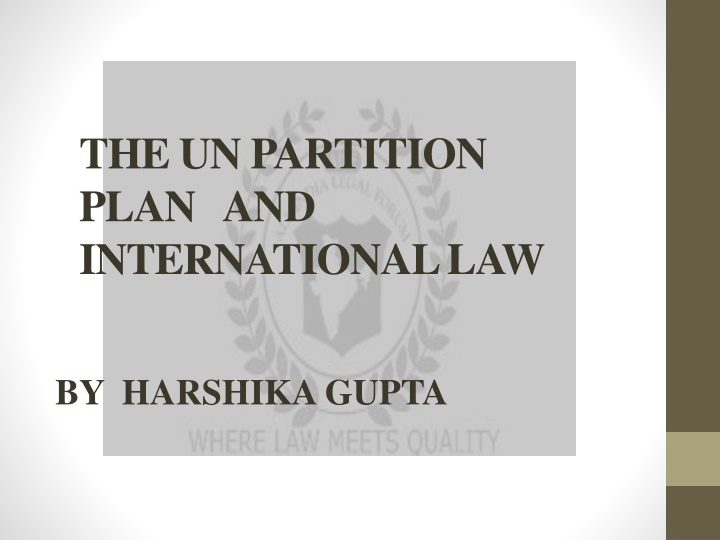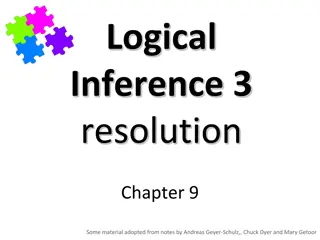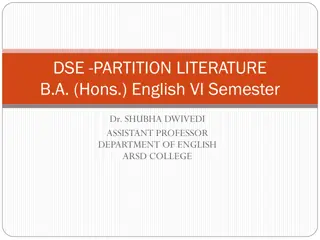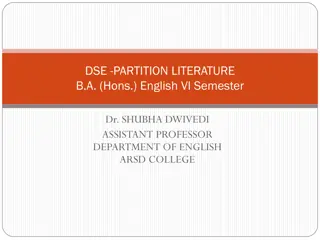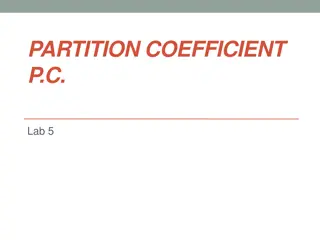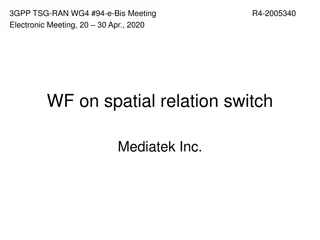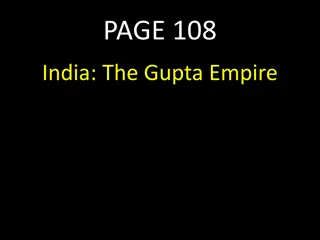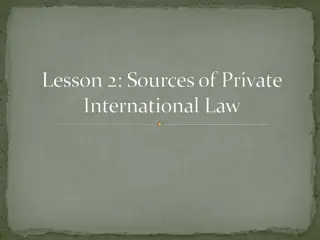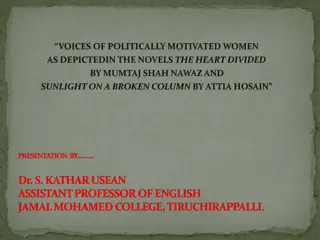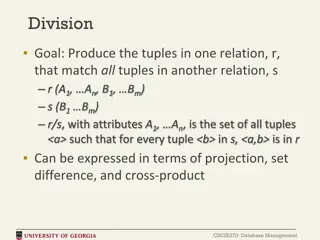The UN Partition Plan and International Law in Relation to Resolution 181 by Harshika Gupta
The United Nations Resolution 181, passed in 1947, recommended the partition of Palestine into Arab and Jewish states. This plan, which led to conflict and violence, was considered a legal basis for the establishment of Israel. The resolution addressed the competing claims of Jews and Arabs over British-controlled territories and the desire for a Jewish National State. Despite resistance, the State of Israel was proclaimed in 1948, leading to further conflicts and invasions by neighboring Arab countries.
Download Presentation

Please find below an Image/Link to download the presentation.
The content on the website is provided AS IS for your information and personal use only. It may not be sold, licensed, or shared on other websites without obtaining consent from the author.If you encounter any issues during the download, it is possible that the publisher has removed the file from their server.
You are allowed to download the files provided on this website for personal or commercial use, subject to the condition that they are used lawfully. All files are the property of their respective owners.
The content on the website is provided AS IS for your information and personal use only. It may not be sold, licensed, or shared on other websites without obtaining consent from the author.
E N D
Presentation Transcript
THE UN PARTITION PLAN AND INTERNATIONAL LAW BY HARSHIKA GUPTA
THE UNITED NATIONS RESOLUTION-181 United Nations Resolution 181, resolution passed by the United Nations (UN) General Assembly in 1947 which recommended for the partition of Palestine into Arab and Jewish states, with the city of Jerusalem as a corpus separatum i.e. separate entity to be governed by a special international regime at the end of British Mandate. This resolution which was considered as modern conflict between Jews and Arabs was considered by the Jewish community in Palestine to be a legal basis for the establishment of Israel. It was rejected by the Arab community but was succeeded almost immediately by violence. It leaded to a civil war and was end of British Mandate.
WHAT WAS IN PARTITION PLAN ? On 29 November 1947, the UN General Assembly adopted the Plan as Resolution 181 (II). The conflict between Arabs and Jews started long back in 1910s because of their claims on British controlled territories. The Jews who emigrated from Russia and Europe wanted to establish a Jewish National State in their ancient homeland of Jews.
On the other hand the Native Palestinian Arabs wanted to stop Jewish emigration and setup a secular Palestinian state. In 1929 an open war started between them and Britain wanted to limit Jewish immigration to appease Arabs. Due to Holocaust in Europe many Jews illegally entered Palestine during world war 2. Radical Jews employed many other Jews as terrorists against British forces in Palestine due to britisher's betrayal in Zionist cause. At the end of World War 2, Britain being unable to find the solution took the problem to UN, which voted for partition plan in Palestine on 29 November 1947.
CREATION OF ISRAEL The Jews could get more than half of Palestine, but they were less than half of Palestine s population. The Palestinian Arabs, got help by volunteers from other countries, to fight the Zionist forces, but the Jews secured full control of their U.N. allocated part of Palestine and also over some Arab territory. On May 14, 1948, Britain withdrew with the expiration of its mandate, and the State of Israel was proclaimed by Jewish Agency Chairman David Ben-Gurion. The next day, forces from Egypt, Jordan, Syria, Lebanon and Iraq invaded over Palestine. Despite a blackout in expected Arab invasion Jews joyously celebrated the birth of their new nation, especially after word was received that the United States had recognized the Jewish state. At midnight, the State of Israel officially came into being upon termination of the British mandate in Palestine.
REFERENCES TO GENERAL ASSEMBLY RESOLUTION 181 (II) BEFORE REGIONAL AND DOMESTIC COURTS In addition to references before international courts, General Assembly resolution 181 (II) was referenced before regional and domestic courts, including courts in Israel, Egypt, Italy, the United Kingdom, the United States, as well as in cases before the European Court of Justice. Many of these decisions appeared to give deference to the views of the Foreign Ministries of the governments of these states, and what their legal advisors thought about the legality of General Assembly resolution 181 (II). Nearly all references to General Assembly resolution 181 (II) have been given as obiter. .
ISRAEL Landau, J., in Attorney General v. el Turani, District Court of Haifa, 21 August 1951, reported in 18 International Law Reports (1957): The State of Israel includes the territories which were given to to it through United Nations decision. Those areas also included demilitarized zone. As given by international law, the demilitarized zone is included within the Partition Resolution, which is a document having validity under international law by United Nations ITALY The Italian council of state delivered an advisory opinion on the rent payable by the Italian Consulate to the Israeli custodian of absentee property in West Jerusalem. It held that although an international law convention (a reference to Resolution 181 (II) providing for the internationalization of the territory) had not yet been implemented, the members of the UN were duty bound to abide by that convention.
EGYPT: An Egyptian prize court, in proceedings against a ship carrying Israeli cargo, questioned the power of the General Assembly to adopt resolution 181 (II). It expressed its view that the UN Charter does not have the competence to partition states and to distribute their territories among different sovereignties.
THE UNITED KINGDOM: El-Ali and Daraz and United Nations High Commissioner for Refugees (intervening) v Secretary of State for the Home Department, Appeal judgment, [2002] Lord Justice Laws explained that on 29 November 1947, the General Assembly of the United Nations voted in favor of the partition of Palestine into two separate States, Arab and Jewish. The British mandate over the territory ended on 14 May 1948. The next day the Jewish community proclaimed the State of Israel THE UNITED STATES: In November 1947, the General Assembly adopted Resolution 181(II), which stated the partition of Palestine into a Jewish state and an Arab state due to the rising conflicts between them. This contemplated that each and every state would gradually gain independence. When British forces were forced to pull out of the region in May 1948, Jewish leaders came into power and proclaimed the establishment of Israel, along the borders which was Resolution 181(II).
AFTERMATH Immediately after the partition plan was proposed and approved by United Nations violence broke out between Palestinian Arabs and Jewish Zionists. There was destruction all over Palestine. In no time, Zionist paramilitary groups could be seen to expel Palestinians from their homes. When Israel was made and it declared independence in May 1948, the war broke out with neighboring Arab countries, there was destruction all around, more than 200 Palestinian towns and villages had been emptied of their inhabitants and most of innocents were killed and abandoned by Zionist forces under Plan Dalet, the blueprint for expelling Palestine's Arab population. This plan was adopted on March 10, 1948, by the Jewish Zionist leaders under (soon to be) Israeli Prime Minister David Ben Gurion.
The Jewish state expanding far beyond the proposed borders, delineated in the Partition Plan Along with this Israeli forces stopped their advance as they were in control of 80% of historic Palestine.
In December 1948, the UN General Assembly passed Resolution 194 calling for the newly created state of Israel to allow Palestinian refugees to return to their homes. It stated that the refugees who are wishing to return to their homes and want to live at peace with their families and neighbor's should be permitted return at the earliest practicable date. The were asked to pay compensation for the property of those choosing not to return and for loss and damage to property which should be made good by the Governments or authorities responsible under principles of international law or in equity. By 1949, approximately 750,000 Palestinians, or 3/4 of the Arab population of historic Palestine, had been ethnically cleansed by Zionist and then Israeli forces in an effort to create a Jewish majority state.
In June 1967, Israel conquered the remaining 22% of historic Palestine, comprising the West Bank, East Jerusalem, and the Gaza Strip. In the intervening years, Israel has systematically transferred more than 500,000 Jewish colonists into the occupied territories in violation of international law, part of a plan designed to preclude a viable, sovereign Palestinian state from ever being established there. To this day, Israel refuses to define its borders and continues to colonize the West Bank and East Jerusalem with Jewish-only settlements in defiance of international law and the will of the international community.
